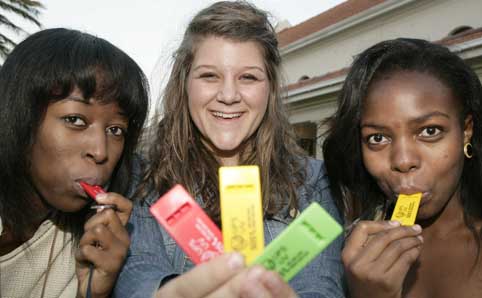 |
|
Safe at Kovsies are from the left: Thando Tuta, Roosmaryn Residence; Elizca Jacobs, Soetdoring Residence; and Phumudzo Rammbwa, Kestell Residence.
Photo: Johan Roux
07 June 2012
|
The University of the Free State is blowing the whistle on crime - literally. To increase safety on its campuses, the university presented whistles to female students in residences on the Bloemfontein Campus.
Students can blow the whistles when they are in danger to alert those nearby. Security personnel patrolling the campus will be alerted by the whistles if assistance is needed.
“We will do everything to keep you safe,” Prof. Jonathan Jansen told residence primes and committee members who collected the whistles on behalf of their residences. “Safety is not something we take for granted”, Prof. Jansen said, informing them that the campus is one of the safest in the country.
Other safety measures the university has undertaken include the installation of more than 30 red poles across the entire campus. Each of these red poles is fitted with a panic button that can be activated to summon help. .Should a student or staff member feel unsafe, all they have to do is press the button and cameras, which are installed in the vicinity, will focus on the pole and Protection Services will send assistance.